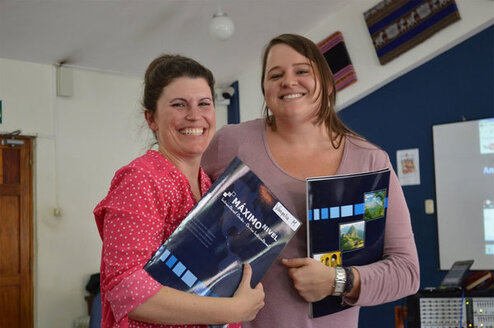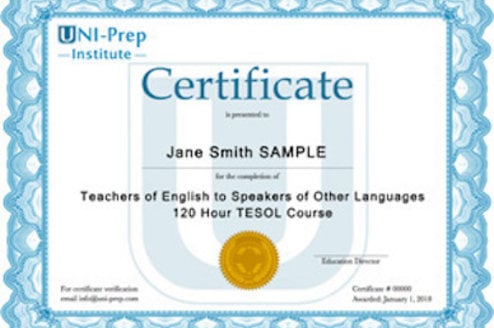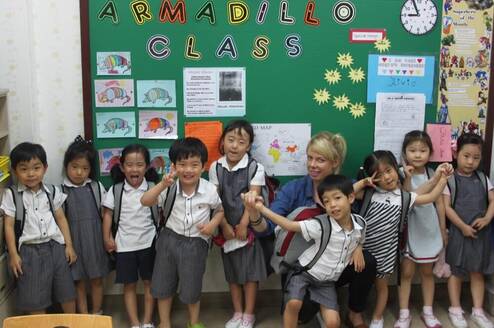Teach English in Fiji
Teaching Programs in Fiji
About
Located in the South Pacific Ocean, Fiji is a tropical getaway that offers its visitors beautiful beaches and a medley of cultures. Teaching English in Fiji offers the opportunity to gain invaluable knowledge while also changing the lives of Fijian youth. In the past, some schools were forced to appoint teachers with only a secondary school diploma due to a shortage of qualified teachers. Teaching placements can be found in many of the major towns and cities in Fiji. Suva, the capital of Fiji, houses many of the teaching jobs in Fiji. Teachers in Fiji will be well supported and welcomed with opened arms by the friendly locals.
Job Types
The majority of schools in Fiji operate as partnerships between community-based or religious organizations and the Ministry of Education. Classroom environment will differ depending on where the school is located. It is common for village schools to consist of a single room in which just one teacher is charged with teaching around twenty students. Class sizes are larger in towns, where one teacher may be teaching up to fifty students at a time. Prospective teachers should decide whether they prefer to work in a rural or urban area, as this will narrow down the types of schools to choose from.
Public Schools:
Many of the teaching positions in Fiji entail working in a primary school and teaching English and subjects like math. Most teaching jobs will require some sort of degree or teaching certification, while certain volunteer programs require no qualifications.
Religious Academies/Schools:
Other teaching opportunities may involve teaching English at a Christian Academy. These academies range in size, with some of them hosting students from Kindergarten through 8th grade. Examples of these academies include Cathedral Secondary School, St. Annes Primary School, and Nadi Christian Academy.
International Schools:
International schools are popular options for expatriates. These include the International School Suva and the International School Nadi.The schools are tuition based and offer both the International Baccalaureate program and ACT (Australian) curriculum.
Private Language Institutes:
Teachers can also teach at institutes where the sole objective of students is to learn English from a native English speaker. At these institutes, you normally teach 5 classes a day for 45-50 minutes, 5 days a week. TEFL typically places volunteers in such institutes.
Find a Job
When and Where to Look for Jobs:
If you’re not teaching with a specific program, it may be easier to first visit Fiji for a few months as a tourist (don’t need visa for 4 months if you’re a U.S. citizen) and find a job while in Fiji.
Qualifications:
TEFL requires a training certification while most teaching jobs will require some sort of degree or certification. For more specialized areas like special needs, teachers will need prior experience in that specific area.
Need to Know
Salary & Cost of Living:
Depending on teachers’ education levels and positions, they may be making anywhere from $900 to $2000 a month. Unless you are teaching through a specific program that situates your housing, you may have to find housing on your own. Fortunately, the overall cost of living in Fiji is relatively low compared to the United States. The average monthly rent for a one bedroom apartment in the city center is around $990, while a one bedroom apartment outside the center averages only $250 a month (Numbeo).
Teachers can also look into setting up a homestay with a host Fijian family. Try to buy local produce, as imported produce is much costlier and can quickly hike up your grocery expenses. Workers in Fiji can also make their stay in the country more affordable by using public transportation.
- Dress Code: Compared to other cultures, attire is for the most part relaxed in Fiji. Teachers in general can get away with casual attire such as short-sleeved shirts, but women should be careful to avoid wearing anything that is too revealing, especially in the more traditional villages. One should also avoid wearing hats in Fijian villages (ehow).
- Business Etiquette & Greetings: In terms of business etiquette, “a firm handshake is the standard form of greeting within business situations.” One should avoid coming off as rude by pointing at a person while speaking to them, and standing with hands on the hips can be construed as a sign of arrogance. Finally, when interacting with the indigenous population be sure to keep in mind that touching someone on the head is considered taboo. When addressing people in person, using their first name is usually appropriate, and one should be cognizant of their use of “yes” because this can sometimes just mean “I understand” rather than “signaling agreement” (ehow).














